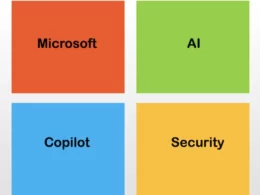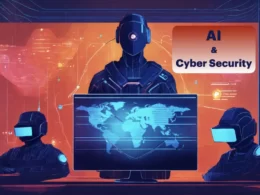In the business world, the subject of cyber crime and cyber security is a huge talking point at the moment. This is a result of the frequency at which cyber security breaches are occurring, and the fact that attacks like the WannaCry from last year happened very much in the public sector.
Companies are looking to bigger and better solutions not only for their data storage, but also for the security that is needed to keep that same data safe from a host of threats, new and old. Artificial Intelligence (AI) may just prove the perfect solution to the security issue for this generation and the next.
There is no escaping just how important Cyber Security is, and when used properly and effectively it can protect a business from literally thousands of Cyber crimes, breaches and other potential risks. However, if there is one side that seems to be outpacing the other side, it’s the hackers and Cyber criminals themselves. Just as new developments are made in internet and computer security, hackers find ways around it and still manage to compromise them and cause problems. In this digital era threats are constantly evolving, and with the development of new software also comes new risks, something AI would be seeking to mitigate.
Artificial Intelligence (AI) is something else that we are also hearing a lot more about and its potential. Although often spoken of in relation to gaming and other, more practical uses, algorithms of deep learning creating enhanced machine learning and using Big Data style models for making analytics easier to afford for businesses, regardless of size and scale and the fact that businesses are now budgeting more money for AI projects and applications, means AI has become a crucial part for companies becoming more digital.
So it makes sense that the two are now being spoken of in the same breath. In this article we will not only look at the benefits of AI being used for Cyber Security, but the downsides too.
Cyber Security Pain Points for Modern Companies
There are two big obstacles that prevent many companies from incorporating a robust policy regarding Cyber Security.
- Modern companies have too many IT-based systems in different locations. This makes checking and assessing the health of these systems, even the more integrated ones, difficult at best. The best way most organisations deal with this issue is to push the more expensive and enhanced technologies on the systems that they feel are most at risk and most pertinent.
- At the moment, the majority of Cyber Security is reactive rather than preventative. Cyber crime happens and then we know about it, and we’re left doing our best to counteract a hacked system. Measures would need to be in place that actively seek out potential risks to the system and eliminate them before they have a chance to do what they intend to. Current basic firewalls aren’t doing the job for SMEs when it comes to a decent level of security.
Using AI Automated Cyber Security For Threat Prevention and Mitigation
It is a tedious, very repetitive and laborious thing to manually manage Cyber Security. This is largely due to the fact that the main security policies are the same ones used in the majority of applications and systems in a business.
But because most systems and applications have different people caring for the Cyber Security side of things, it means there are far too many members of staff fulfilling the same sort of roles. By using automated Cyber Security, the same policies would be implemented in all applications effectively. Thus reducing the resources a company would need and making it easier to update policies, when necessary, across the systems. AI could be a key component then to streamlining these aspects of a business.
AI also could have the ability to analyse and act on data that you may not even be aware of in order to protect your system. For example, if hackers repeatedly use the same entry point to gain access to a system remotely, AI Cyber Security may well become ‘accustomed’ to the signature used and set up a secondary line of defence in advance for the next attack when the signature is detected.
Possible Downsides of Automated AI Cyber Security
It’s all well and good to look at the positives, but there are some downsides to automated Cyber security that are worth considering. Including:
- When anything in life and business is automated, there will always be the question and issue of possible job losses and then the reassignment of staff previously employed in Cyber Security.
- It is always with a hint of distrust and uneasiness, that people put control of something to an automated machine or system. Which is particularly true when referring to automated Cyber Security.
- There is the risk of overspending because there are only a small number of AI-controlled Cyber Security systems at the moment.
This post was contributed by Andrew Mabbitt, an ethical hacker at fidusinfosec.com











